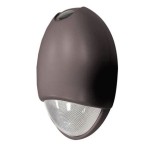Victorian Outdoor Wall Lighting Systems: Illuminating the Past
Victorian-era architecture, known for its ornate details and grandeur, often features distinctive outdoor lighting systems that continue to captivate and inspire today. These lighting systems, a blend of functionality and aesthetic charm, played a crucial role in illuminating the exterior of Victorian homes and public spaces. This article explores the key characteristics, design elements, and historical significance of Victorian outdoor wall lighting systems.
Gas Lighting: Illuminating the Victorian Era
The invention of gas lighting in the early 19th century revolutionized outdoor lighting. Gas lamps, fueled by coal gas, replaced oil lamps and candles, providing brighter and more efficient illumination. Victorian-era outdoor wall lighting systems heavily relied on gas lighting, utilizing a variety of lamp designs to enhance the aesthetic appeal of buildings. Gas lamps were typically mounted on ornate brackets, often crafted from cast iron or wrought iron, and adorned with intricate details like scrolls, floral motifs, or geometric patterns. The lamps themselves were usually fitted with glass globes, often etched or colored to diffuse the light and create a warm ambiance. The use of gas lighting not only provided practical illumination for security and navigation but also contributed to the romantic and picturesque atmosphere that characterized the Victorian era.
Design Elements and Styles
Victorian outdoor wall lighting systems exhibited a wide range of design elements, reflecting the diverse architectural styles prevalent during that era. Some of the common stylistic features include:
- Gothic Revival: Gothic Revival architecture, characterized by pointed arches, stained glass windows, and intricate stonework, often featured gas lamps with similarly elaborate designs. These lamps frequently incorporated pointed or arched shapes, tracery details, and ornate finials.
- Queen Anne: Queen Anne style, known for its asymmetrical facades, gables, and decorative half-timbering, favored gas lamps that blended seamlessly with the architecture. Often, these lamps were crafted with a more relaxed and less formal aesthetic, featuring simple, elegant curves and natural motifs like leaves and flowers.
- Romanesque Revival: Romanesque Revival architecture, with its heavy masonry, rounded arches, and robust forms, lent itself well to cast iron gas lamps with bold, geometric designs. These lamps often featured square or circular shapes, intricate detailing, and decorative brackets.
In addition to these stylistic variations, Victorian outdoor wall lighting systems often incorporated other design elements that enhanced their visual appeal and functionality:
- Lanterns: Lanterns were a popular choice for Victorian outdoor lighting, offering a more enclosed and protected space for the gaslight. These lanterns were often made from glass, metal, or wood and could be decorated with etched patterns, stained glass, or other decorative elements.
- Brackets: Gas lamps were typically mounted on brackets that were aesthetically integrated with the architecture. These brackets could be simple or elaborate, with various designs and materials used to create visual interest.
- Glass Globes: Glass globes were crucial for protecting the gaslight and diffusing the light effectively. These globes came in a variety of shapes and sizes, with some featuring etched, frosted, or colored designs to further enhance the appearance of the lamps.
Historical Significance and Impact
Victorian outdoor wall lighting systems played a significant role in shaping the urban landscape and social life of the Victorian era. Gas lighting provided a safer and more secure environment for pedestrians and travelers at night, and it also fostered a sense of community by illuminating public spaces and encouraging social activities. These lighting systems were not only practical but also aesthetically pleasing, contributing to the distinct charm and elegance of Victorian architecture.
Furthermore, the widespread adoption of gas lighting during the Victorian era led to technological advancements and innovations in lighting technology. The development of gas lamps and their associated infrastructure paved the way for the emergence of electric lighting in the late 19th century, marking a pivotal moment in the history of illumination.
Today, Victorian outdoor wall lighting systems continue to inspire architects, designers, and homeowners. Their historical significance, timeless elegance, and ability to enhance the curb appeal of buildings have made them a popular choice for both period restorations and modern homes seeking a touch of classic sophistication. The intricate detailing and artistic craftsmanship of these lighting systems continue to captivate and illuminate the Victorian era, reminding us of the enduring legacy of this influential period.

Victorian Style Wall Light Traditional Lantern Period Lights

Jonathan Y Bonner 12 In Green 1 Light Farmhouse Industrial Indoor Outdoor Iron Led Victorian Arm Sconce Jyl7616f The Home Depot

Gama Sonic Victorian Morph 1 Light 21 25 In Black Solar Outdoor Wall The Lights Department At Com

Victorian Inspired Outdoor Wall Light Mounted Lighting 24 With Sconce Nice

Reef 1 Light Outdoor In Victorian Broe Lights Com

Exterior Victorian Porch Lighting Oldhouseguy Blog Outdoor

Lantern 9 In Wide Scrolled Arm Exterior Wall Light Brass Gallery Milwaee Wisconsin 53233

Kichler Tournai 3 Light 29 In Londonderry Outdoor Wall The Lights Department At Com

Jonathan Y Wallace 12 25 In Black 1 Light Farmhouse Industrial Indoor Outdoor Iron Led Victorian Arm Sconce Jyl7615b The Home Depot

Lantern 11 In Wide Scrolled Coach Exterior Wall Light Brass Gallery Milwaee Wisconsin 53233
Related Posts







